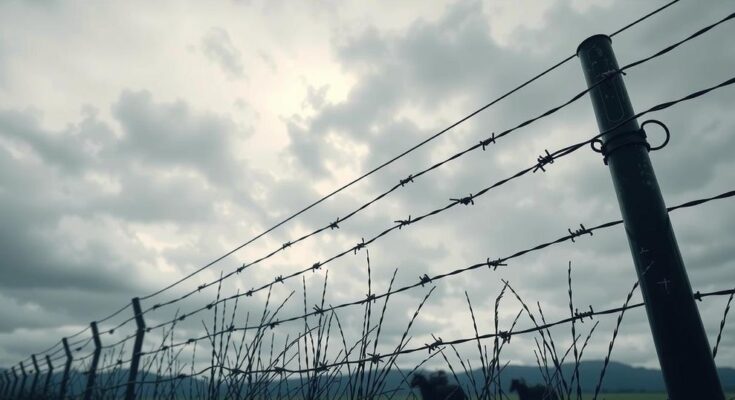Azerbaijan has maintained closed land borders with its neighbors—Iran, Russia, Georgia, and Turkey—since March 2020, initially citing concerns over COVID-19. While cargo traffic continued, citizens found themselves unable to traverse these borders. Despite the World Health Organization declaring the pandemic no longer an emergency by May 2023, authorities persist in the border closures under pretexts of national security, a narrative that has evolved over the years.
In April 2024, President Ilham Aliyev acknowledged these closures, affirming their benefits for national security. He stated, “Keeping the land borders closed was a decision made because of COVID. We are still formally in the quarantine phase… we have seen tremendous benefits for our national security after we closed our borders.” This stance, framed as a protective measure, has drawn mixed reactions, particularly regarding the consequences for ordinary citizens seeking to cross these borders.
Critics assert the government’s reasoning behind the closure lacks merit, with opponents questioning the genuine threat posed by refugees from conflict zones. Political expert Alya Yagublu argued that if the authorities enforce security measures for air travel, equivalent protocols should be applied to land travel. By shutting the borders, Azerbaijani emigrants are effectively barred from returning home, exacerbating the country’s economic challenges.
The ongoing closures have created heart-wrenching obstacles for many Azerbaijani citizens. Individuals like Khaliq Hasanov, who could no longer visit family due to health conditions, exemplify the emotional toll of these restrictions. Farida, reliant on borders for her livelihood, has been dramatically affected by her inability to conduct business across borders, showcasing the real-life implications of government policies.
As we approach five years of closed borders, a growing number of affected Azerbaijanis are calling for action. An online petition by ethnic Azerbaijanis in Georgia reflects their desperation, urging President Aliyev to allow at least limited border movement. Despite these appeals, the government maintains its narrative of security concerns, leaving many to wonder how long this situation will persist in a world that has otherwise begun to reopen.
Azerbaijan has closed its land borders with neighboring countries since March 2020, initially due to COVID-19, later citing security reasons. This closure has significantly affected the lives of ordinary citizens and many Azerbaijani expatriates. The government’s narrative is increasingly questioned, especially as the impact on human rights and individual freedom continues to grow. Calls for action are rising as affected citizens seek changes to these restrictions.
Azerbaijan’s decision to keep its land borders closed for nearly five years, initially justified by COVID-19 and later by national security concerns, has led to significant challenges for its citizens. Many individuals, unable to travel or support their families, have voiced their plight. The growing frustration among affected families highlights an urgent need for reevaluation of such policies, particularly as the world moves on from pandemic restrictions. As the narrative continues to evolve, it remains crucial to address the human rights implications of this enduring mandate.
The issue of Azerbaijan’s closed land borders arose during the COVID-19 pandemic, initially framed as a public health measure. However, the prolonged closures have sparked debates on human rights, national security, and the government’s responsibility to its citizens. With Azerbaijani citizens living abroad feeling the impact, and many unable to return home or visit family, the situation raises critical questions about freedom of movement and the implications of government policies on individual rights.
Original Source: globalvoices.org



